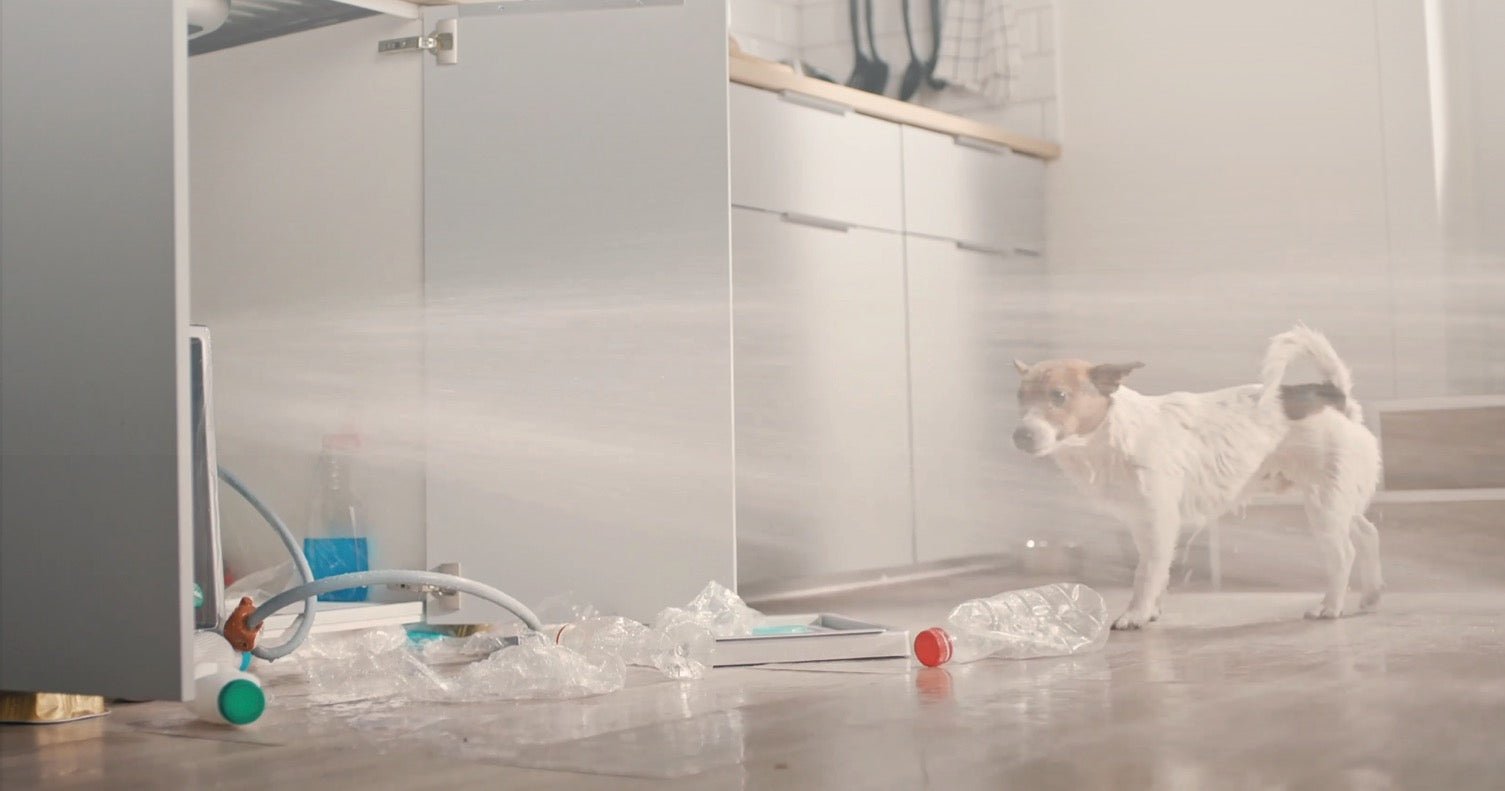There is no doubt water damage presents a massive threat to American homes. Industry estimates reveal 14,000 people in the US experience a water damage emergency at home or work each day, with 98 percent of basements in the US expected to suffer from some kind of water damage during their lifetime. Luckily, you can reduce the risk of water leaks with the help of Smart Water Security systems.
What is Smart Water Security?
Smart water security is a sensor designed to protect your home from incoming water pressure and outgoing fixture leaks. The system detects water and prevents excess moisture or flooding that may result from faulty pipes or appliances. Ideally, when an unusual water activity occurs in your home due to high humidity or the risk of freezing pipes, the water sensor sets off a physical alarm or triggers an alert sent via Wi-Fi to your phone or computer. Some smart water security systems can also automatically shut off valves to prevent substantial damage.
What Are the Actual Costs of Inaction?
According to HomeAdvisor, the cost of water damage repairs ranges from $450 to $7,000 per square foot, depending on the type of damage. In 2017 alone, insurance companies paid out $13 billion to repair homes and properties damaged by water. However, the actual cost of water damage goes beyond the cost of clean-up, repairs, restoration, and maintaining a home. Water-damaged materials that are not cleaned or adequately dried allow viruses, bacteria, and mold to grow, which ultimately results in serious long-term risks by triggering allergic reactions and other illnesses.
How Does the Water Sensor Security System Work?
Water sensor security systems are designed to detect the presence of water in places where water should not be present. When the Wi-Fi network is enabled, the system sends out a notification to your smartphone or PC whenever there is a water leak, so you act quickly and avert impending damage. If you are away from home, you can designate a family member, friend, or caretaker to receive a notification of a leak. As mentioned earlier, some water-sensor systems can be programmed to shut off valves and prevent a small leak from becoming a large one.
How to Find the Right System for Your Home?
When shopping for a water sensor security system, consider the following features:
- Smart home integration – If you are already using other intelligent home gadgets, determine if you can integrate the water sensor system with other intelligent home products in your smart home ecosystem, e.g., Apple HomeKit and Amazon Alexa. While some smart water security systems work independently via apps, others require a robust hub feature that acts as a type of central command to link all devices together.
- Multiple sensors – You should also choose gadgets that allow for the addition of multiple sensors to help you keep track of all your sensors. With such options, you can place as many sensors as possible on vulnerable places with a higher risk of leaks during storms. For example, you can place one near your washer, another in your basement, and another on a window that often leaks in high storms.
- Automatic water shut off – If your budget allows, you can go for a system with the ability to automatically shut off the water source once a leak is detected. Such systems prevent unchecked leaks from developing into floods that cause massive damage.
- Temperature monitoring – If you live in cold weather climates, go for a system that can also monitor freezing temperatures. Such a system will automatically alert you of potential freezing pipes so that you take urgent action. Some systems are also designed to detect excess humidity, which, if left unchecked, can result in a mold problem.
- Battery life – Most sensors in the market are powered by a battery that lasts for at least one year. If you can get a system with a battery that lasts upwards of five years, the better. You should also opt for a system that sends alerts if the battery needs replacing.
Where Should I Place My Water Detector?
A rule of thumb is to have a professional inspect your home and identify the ideal places to place your water sensors. Generally, if you have any piping that runs through the basement, set the water system underneath it. You can also place the system underneath basement windows, in the bathroom area, your kitchen sink, and any other prime risk area for water leaks.
Can I Install My Water Sensor Outdoors?
No. water detectors are to be used for indoor installation only. They are designed to be used in such indoor locations as the attic, crawl spaces, ceilings, garages, basements, near windows, and other spots away from moist and humid conditions.
Will My Water Sensor System Shutoff If I Lose My Electricity?
Most water sensor systems come with inbuilt batteries, which means the sensor will continue operating even when the power in your home fails. However, it is essential to replace the battery once its lifespan runs out.
How Do I Check If My Water Sensor Is in Perfect condition?
Use a moist paper towel to cover the sensor pads. If the sensor produces two quick LED blinks, it is enough proof it is working. Ensure you remove the paper towel and dry the metal sensor contacts to clear the water alarm.
How Many Sensors Should I Use?
The number of sensors to install in your home depends on the type of system and the number of locations in your home or building prone to water leakage. The rule of thumb is to place sensors on areas most likely to be sources of water leaks.

Share:
Open your business (and home) safely
New security cameras from Google Nest.